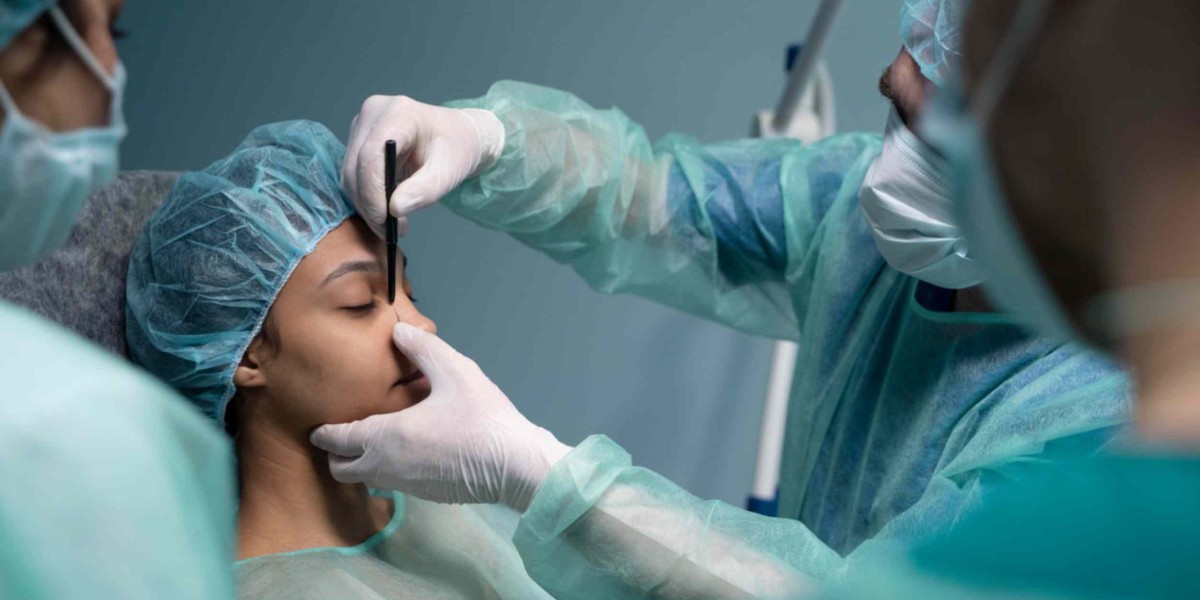Plastic surgery in Patna has matured from small cosmetic clinics into multi-disciplinary hospital departments that offer both aesthetic procedures and complex reconstructive care (trauma, burns, microsurgery). This article explains what modern plastic surgery hospitals in Patna do, how they are staffed and equipped, what patients should expect before and after treatment, and a practical checklist you can use when selecting a hospital or surgeon. Wherever possible I reference local sources and hospital departments so you can follow up directly with providers.
Why Patna — and why a hospital setting matters
Patna now hosts tertiary hospitals and specialty clinics that combine plastic, reconstructive, and burn care with other specialties (anesthesia, critical care, oncolog,y and physiotherapy). That matters because many reconstructive and complex cosmetic procedures require integrated peri-operative support (intensive care, blood bank, imaging) and multidisciplinary follow-up — services more reliably found in hospital departments than in stand-alone salons. Major local centres (including government and private tertiary hospitals) run established burns and plastic surgery units, reflecting this integrated model of care.
Core services you’ll find at a plastic surgery hospital in Patna
A well-run plastic surgery department in Patna typically provides the following:
Reconstructive surgery
Trauma reconstruction (facial fractures, soft-tissue repair)
Oncologic reconstruction (breast/chest wall, head & neck)
Congenital anomaly repair (cleft lip/palate, limb differences).
These services require close coordination with general surgery, ENT, oncology and physiotherapy teams.
Burns care and scar reconstruction
Acute burn management and staged reconstruction for contractures and scar release. AIIMS-Patna and other tertiary centres list dedicated burns services with beds and operating facilities for this purpose. Burns care is a major reconstructive sub-specialty with long-term rehabilitation needs.
Aesthetic (cosmetic) procedures
Face (rhinoplasty, facelifts), body contouring (liposuction, abdominoplasty), breast procedures (augmentation, reduction, mastopexy) and non-surgical adjuncts (fillers, PRP). Reputable hospitals offer these within regulated operating rooms and anesthesia services.
Microsurgery and hand surgery
Free-flap reconstructions, replantation and microsurgical repair for complex soft tissue defects are available at centres with M.Ch-trained plastic surgeons and microvascular microscopes. Listings of specialists show surgeons in Patna with microsurgery training.
Credentials and quality markers to look for
When evaluating a plastic surgery hospital or surgeon, focus on measurable credentials and systems rather than marketing language:
Surgeon qualifications: look for M.Ch (Plastic Surgery), DNB (Plastic Surgery) or equivalent fellowships and documented experience in the specific procedure you need. Practo and hospital profiles list surgeon training and years of experience.
Departmental capabilities: an established burns unit, separate day-care theatres for elective cosmetic work, ICU access ,and physiotherapy/rehab services. AIIMS-Patna and multi-speciality hospitals advertise these capabilities.
Hospital accreditation & infection control: national/state accreditation, transparent complication reporting and standardized consent practices reduce risk. Ask the hospital for outcome statistics for the specific procedure.
Multidisciplinary care: coordination with oncology, ENT, orthopedics, anesthesiology and speech therapy (for cleft/burn patients) is essential for complex cases.
What to expect: the patient pathway
1. First consultation (evaluation and options): a focused history, clinical exam, photographs, and clear explanation of options (including conservative or non-surgical alternatives). A good surgeon explains expected outcomes, recovery timeline and risks in plain language.
2. Pre-operative workup: lab tests, imaging, and anesthesia assessment. For reconstructive or oncologic cases this can include coordination with other specialists.
3. Informed consent & planning: documented consent that lists benefits, common and rare complications, and staged care plan (if applicable).
4. Procedure and immediate care: in a hospital setting, anesthesiologist involvement and post-op monitoring reduce peri-operative risk.
5. Rehabilitation and follow-up: wound care, scar management, physiotherapy and checkups. For burns and microsurgery, staged reconstruction and long-term rehab are common.
Choosing the right hospital/surgeon — a practical checklist
Use this short checklist before booking:
Is the surgeon’s speciality training and experience clearly stated? (M.Ch/DNB, fellowship).
Does the hospital have a burns unit or plastic surgery department with dedicated beds and an operating theatre? (Look for pages describing those services).
Can the hospital provide before/after photos and (non-identifying) outcome statistics for the procedure?
Is anesthesia and critical care available in the same hospital?
What is the stated protocol for complications and emergency re-operation?
Are pre-op and post-op costs itemized in writing? Avoid surprises by getting a written estimate that includes facility, anesthesia and implant/device costs where applicable.
Common, evidence-based questions patients ask
Is plastic surgery safe in Patna?
Yes—when performed in a hospital with credentialed surgeons, appropriate anesthesia, and infection control. Large tertiary hospitals and multi-specialty centres in Patna provide this level of care. However, outcomes vary by surgeon experience and facility systems, so verification matters.
Will insurance cover reconstructive surgery?
Many reconstructive procedures (trauma, burns, post-cancer reconstruction, congenital repairs) are medically necessary and often covered; purely cosmetic procedures typically are not. Confirm with both the hospital billing office and your insurer.
How long is recovery?
Recovery ranges widely: outpatient non-invasive procedures may require days; major reconstructive or body contouring surgeries often require weeks to months of staged recovery and rehabilitation.
Local examples and where to learn more
Patna hosts a mix of government and private centres with active plastic surgery services — from AIIMS-Patna’s burns and plastic surgery unit to private multi-speciality hospitals and specialist clinics that publish surgeon profiles and service pages. Checking hospital specialty pages and verified doctor listings (Practo, hospital websites) is a practical next step when you need up-to-date contact details and appointment booking.







